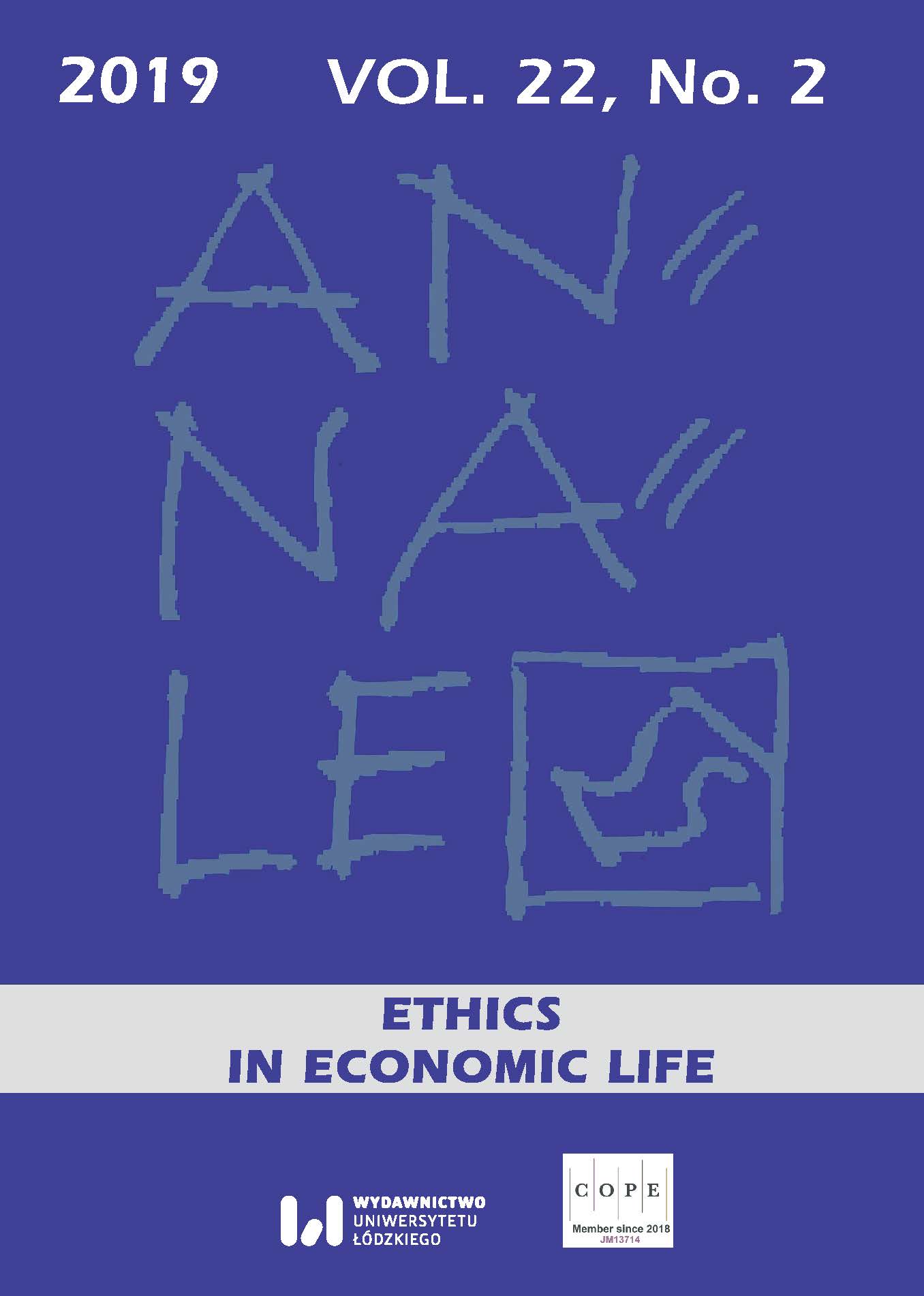„Doregulacja”. Nieprecyzyjność prawa jako nowa przyczyna wyznaczania standardów postępowania przez organizacje branżowe w procesie samoregulacji
DOI:
https://doi.org/10.18778/1899-2226.22.2.05Słowa kluczowe:
industry self-regulation, business ethics, business law, industry standard, industry organizationsAbstrakt
Over the last few years, a change has been noticed in the approach to shaping legal regulations in the economic field, and this has become the motive for a new approach to self-regulation. The change consists in the fact that the legislator mainly defines the purpose of a regulation, the regulatory framework, and the sanctions. However, it does not contain specific provisions indicating how an economic entity should fulfill the purpose of a given regulation. Thus, it leaves the broad sphere undefined. The legislator indicates what is expected, what the sanction for non-compliance will be, but it does not indicate exactly how business owners should achieve this compliance. The aim of the article is to describe a new trend of self-regulation, from the perspective of the role that industry organizations can play. Three examples of new acts in the field of commercial law are analyzed, which are characterized by a lack of clarity and are part of the case-law framework. Two initiatives of an industry organization which clarify unclear legal provisions are pointed out. The analyses make it possible to state that the industry organizations are able to take responsibility for interpretations of imprecise regulations in the field of commercial law. The organizations are also able to set standards of conduct and develop industry self-regulation so that they are respected by the industry and the legislator as a response to the new model of shaping the law.
Bibliografia
Biernacki, P. (2018). Błędy w raportowaniu niefinansowym. Parkiet. https://www.parkiet.com/Akademia-inwestycyjna/309219938-Bledy-w-raportowaniuniefinansowym.html
Google Scholar
Biernatowski, P. (2017). Wyższe kary za naruszenie informacji poufnych, Obserwator Finansowy. https://www.obserwatorfinansowy.pl/tematyka/rynkifinansowe/wyzsze-kary-za-naruszenie-informacji-poufnych/
Google Scholar
Bieżuński, P. (2017). Dane niefinansowe, czyli nowe obowiązki spółek giełdowych. Stowarzyszenie Inwestorów Indywidualnych. http://www.sii.org.pl/11922/aktualnosci/felietony/dane-niefinansowe-czyli-nowe-obowiazki-spolek-gieldowych.html
Google Scholar
Gębusia, I. (2019). Nowe regulacje MAR/MAD II. https://www.chwp.pl/naszepublikacje/nowe-regulacje-marmad-ii/
Google Scholar
Jonak, J. (2016). Problem informacji poufnych. Rzeczpospolita. https://www.rp.pl/Opinie/305119871-Problem-informacji-poufnych.html
Google Scholar
Koziorowski, L. (2014). Market Abuse Regulation – wyzwaniem dla zarządów spółek publicznych. Miesięcznik Kapitałowy. https://gessel.pl/publikacje/market-abuse-regulation-wyzwaniem-dla-zarzadow-spolek-publicznych/
Google Scholar
Partyka-Opiela, A., & Hlebicka-Józefowicz, A. (2017). Co dla przedsiębiorców oznacza nowa ustawa o jawności życia publicznego? https://portal.dzp.pl/alerty/93-co-dla-firm-oznacza-nowa-ustawa-o-jawnosci-zycia-publicznego
Google Scholar
Sroka, R. (2018). Ustawa o jawności życia publicznego – najczęściej zadawane pytania przez przedsiębiorców. https://www.blog.ey.pl/audytsledczy/ustawa-o-jawnosci-zycia-publicznego-najczesciej-zadawane-pytania-przez-przedsiebiorcow/
Google Scholar
Tokarczyk, R. (2019). Filozofia prawa. Warszawa: LexisNexis.
Google Scholar
Ustawa o jawności życia publicznego z 23.10.2017.
Google Scholar
Wprowadzono obowiązek raportowania niefinansowego (2017). Zeszyty Metodyczne Rachunkowości, 2(434). https://www.gofin.pl/bilans/17,8,567,984,wprowadzono-obowiazek-raportowania-niefinansowego.html
Google Scholar
Zirk-Sadowski, M. (2011). Wprowadzenie do filozofii prawa. Warszawa: LEX a Wolters Kluwer Polska.
Google Scholar
Pobrania
Opublikowane
Jak cytować
Numer
Dział
Licencja

Utwór dostępny jest na licencji Creative Commons Uznanie autorstwa – Użycie niekomercyjne – Bez utworów zależnych 4.0 Międzynarodowe.









